“You can’t judge a book by its cover,” has perhaps never applied to any person more than to Aberdeen anarchist and punk singer Dod ‘ACAB’ Copland.
For behind his spiky hair and eyeliner, and underneath his trademark expletive-covered jacket, there was a troubled but gentle soul, “more weel kent in Aberdeen than Willie Miller”.
The former Toxik Ephex frontman – more recently recognisable as the man carrying the ghetto blaster around Union Street – passed away aged 59, and leaves behind him a legacy of entertainment, chaos, charity work and kindness.
And a million things he borrowed from people over the years, “because once you gave a loan of something to Dod… you never saw it again”.
Formed by anarchy
Born George Copland on April 2, 1963, Dod was the youngest of 10 children for fish-filleter Ruby, and former naval shipwright Abbie Copland.
By the time Dod arrived, his seven sisters and two brothers had moved from Woodside to Heathryfold, and Northfield would remain his home for the best part of his life thereafter.
As a child, he attended Marchburn School and then went on to Northfield Academy.
But at the age of 14, the course of the rest of his life was set with the introduction of punk music and anarchy.
A future in music
“It was really a defining time for Dod. From then on that was his thing. It shaped everything,” said Dod’s brother Ian Copland, five years his senior.
As punk gathered a cult following in the mid-70s, Dod was already being exposed to Scotland’s music scene.
His older sister’s husband was a musician with Ian involved in the soul movement, and both parents – though they had wildly different tastes – also loved listening to music.
By 1978 Dod went from his short feathery hair, which exposed his ‘sticky oot’ ears, earning him the nickname ‘wing nut’ to the dyed-blonde Billy Idol look he was known for, for decades.
Punk and piping
In the early 80s, driven by a love of Scotland and a rejection of Westminster, Dod took up the bagpipes. Perhaps influenced by the legacy of his drum major grandfather, he was self taught, with a few professional lessons thrown in.
His new skill gave him a means to earn money through busking, and would later be the perfect opener to punk gigs around the country.
From his family home Dod lived in various flats around the city – always open to whoever needed a place to stay. He would later return to Northfield.
Aberdeen punk band Toxik Ephex, started by Fred Wilkinson, began in 1979. But in 1985 after searching for a new singer, Dod joined their ranks.
Their first recording took place in 1987 at Pier Studios in Edinburgh.
“I went down to see him,” said Ian. “He was like a ball of energy. At one time Toxik Ephex were regarded as the best punk band in Scotland – and Dod was the best front man.”
‘Stick it to the man’
From time to time – despite believing in never working ‘for the man’ – Dod found himself in need of employment.
“It was always short lived. ‘I’m nae working for the Yankee dollar,’ he’d say. The best story was when we both worked by a glass fibre factory,” Ian explained.
“After three months he was done. He’d just had it. He took a board, hammered a nail in and made a placard. On it he wrote ‘ F*** this sh**’ and paraded it ’round the factory.
“If Dod was done he was done.”
This personality trait was often reflected in his relationships.
‘Better than maist’
Though fiercely loyal and forever on the side of those suffering injustice, deep-set mental health challenges and an often volatile streak could turn friendships sour.
“Dod could tick a’body off. And get ticked off by a’body as well.”
In a tribute after Dod’s funeral, bandmate Fred Wilkinson described the many sides of Dod.
He wrote: “Tae paint Dod as ‘perfect’ would hae been a lie. He was mair than one guy, he lived mair than one life. Like 10 guys rolled in tae one. Each the same but different, nane perfect, but each better than maist.
“Oor auld mate Dod Copland did mair for Aiberdeen, the UK punk scene, and various folk than Willie Miller or Denis Law.”
Life-changing trauma
Ian added: “There was a lot underneath the surface with my brother that not everyone knows about.
“He suffered abuse – and never really got the justice he deserved for that.
“He also witnessed something as a young man that forever changed him.”
Working on a youth placement in an arts venue, a freak accident saw his friend burned alive in front of Dod.
“Who wouldn’t have struggles after that?”
Health battles
Dod never married, “but had plenty of girlfriends” over the years.
However, in his mid-40s, he succumbed to Crohn’s disease, which runs in his family.
The often painful and debilitating bowel condition was worsened by Dod’s recreational drug use, which impaired his kidney function.
His health struggles and anarchic lifestyle were a breeding ground for being chaotic in every aspect of his life.
“My parents never really understood him. And you’re all over the place when you’re at the mercy of a health condition.”
Charity work
Over the years Dod became involved with various charities and causes in and around Aberdeen, including Instant Neighbour and dog rescue charity BARRK.
After a spate of muggings in Aberdeen, Toxik Ephex held a charity concert with the proceeds going to victims.
That wasn’t justice enough for Dod, however.
Alongside longtime best friend Steve Riley, a plan was hatched.
Dressed as old women with dresses and wigs, they went out about to see if they would be attacked.
“Just as well they weren’t,” said Ian. “Because Steve was a martial arts expert and Dod was also certified in Tae Kwon Do.”
Generous spirit
In the wake of Dod’s death, the family have found endless pieces of evidence highlighting his many acts of generosity.
Food hygiene certificates were uncovered alongside letters of thanks for all the cakes he baked. Stories were told of Dod going to Bosnia at the height of the troubles, where he played the pipes for four days straight.
And his doctors shared stories of his generosity towards medical staff and their children.
“As long as you live you’ll never meet anyone like him. He touched so many lives. The extent of his kindness to those less fortunate will never be truly known,” added Ian.
Towards the end
Despite eating well, enjoying a plain diet of Scottish fayre like mince and tatties and stovies, Dod’s kidneys began to fail.
Coupled with Crohn’s, and then a diagnosis of bone cancer, his final months were increasingly filled with pain.
Knowing the end was near, he began making up with friends and family who had been estranged, but like everything else in his life, even his passing was on his terms.
“My sisters and I had been with him round the clock,” said Ian. “When he was comfortable we all went for showers, and he was at home with friends. No sooner had we gone than we got a call to come back. We missed him going by minutes.
“That was Dod for you. He knew the end was coming.”
Poignant last words
In one final conversation between the brothers, Dod, dealing with insufferable pain, uttered a sentence that summed up the complex nature of who he was at his core.
“He said, ‘either take me now,’ looking to the heavens, ‘or find me a woman that I can truly love.’
“He was troubled. And caused trouble. And was larger than life. But he was also my brother. A man who wanted love.”
Memorial
Dod was laid to rest wearing his Showaddywaddy crepe shoes, blue tartan trousers and his anarchist jacket. Around his neck were the ashes of his brother Abbie and his great nephew, alongside an upside down cross.
He was wearing his trademark eyeliner.
“Everything had to be perfect. His hair was flattened at one point… but Dod Copland with flat hair! Unthinkable. So we sorted it out.
“Hundreds gathered to pay their last respects to him, which our family were really grateful for.”
A graffiti art mural has also been created in his honour on Manor Drive.
Dod is survived by his brother, six remaining sisters and his many nieces and nephews.
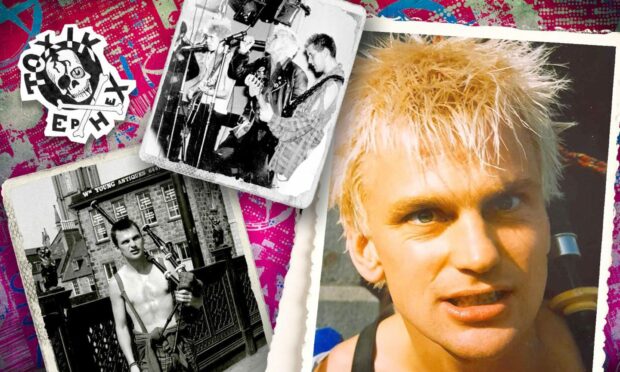
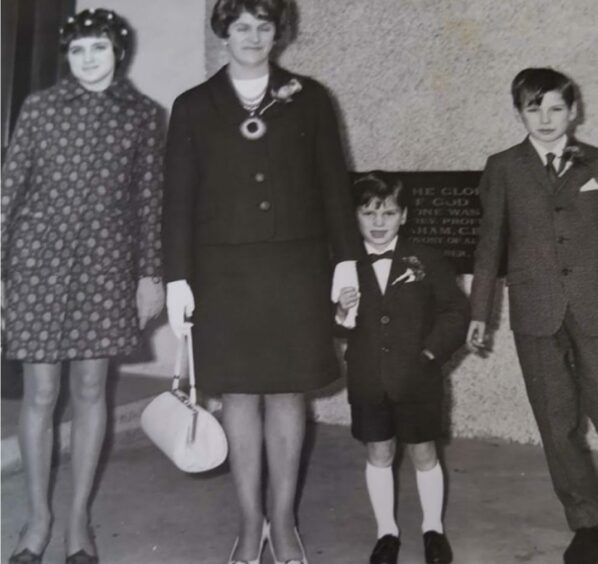
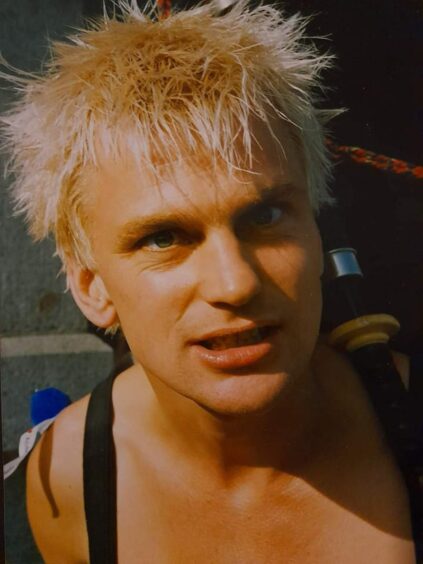
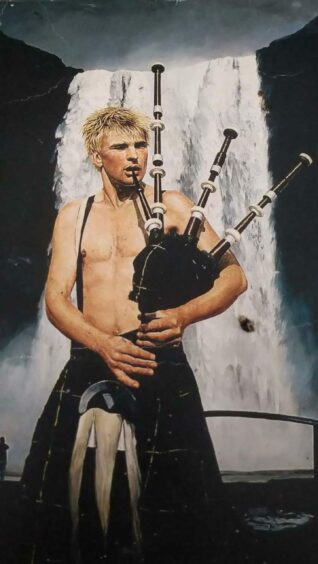
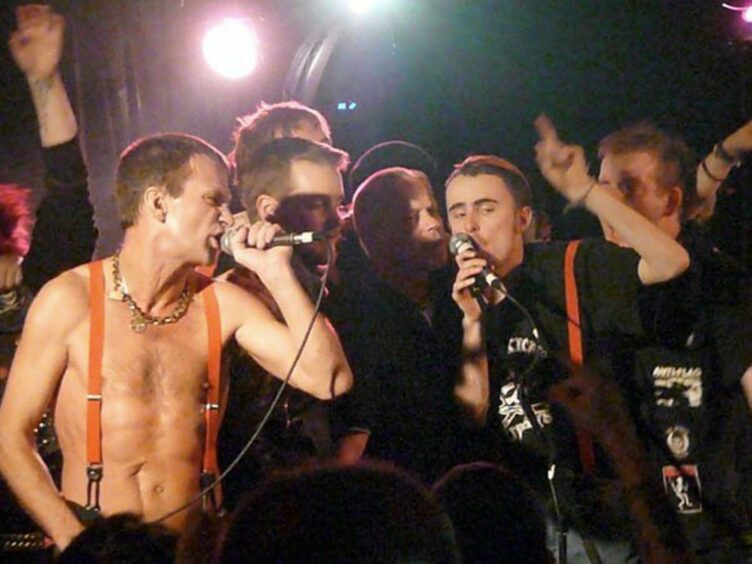
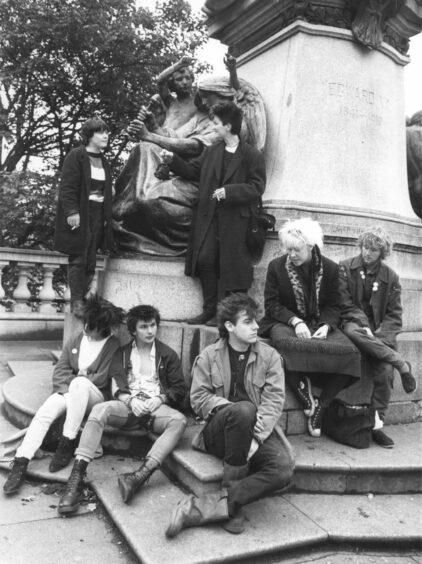
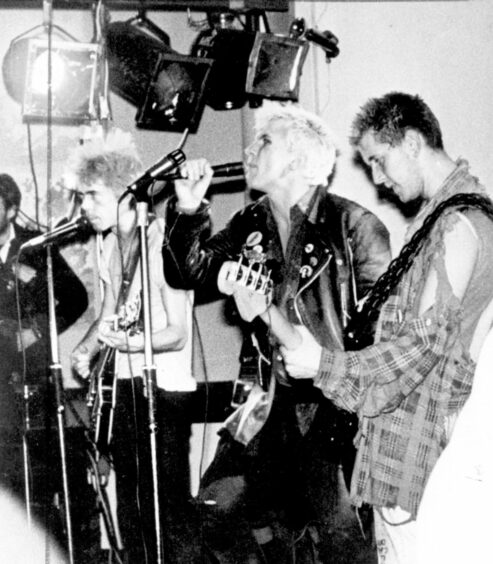
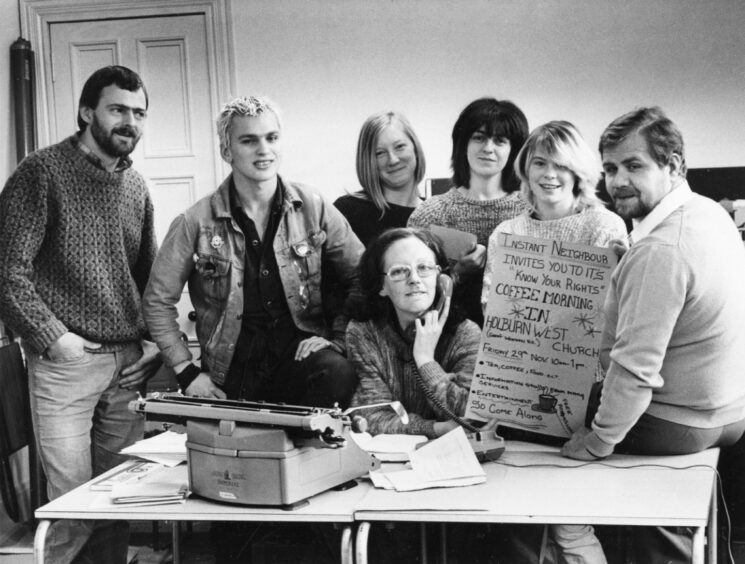
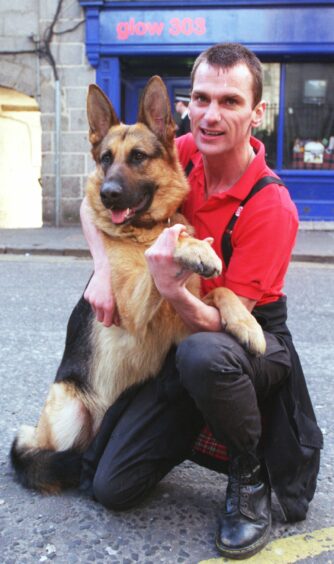
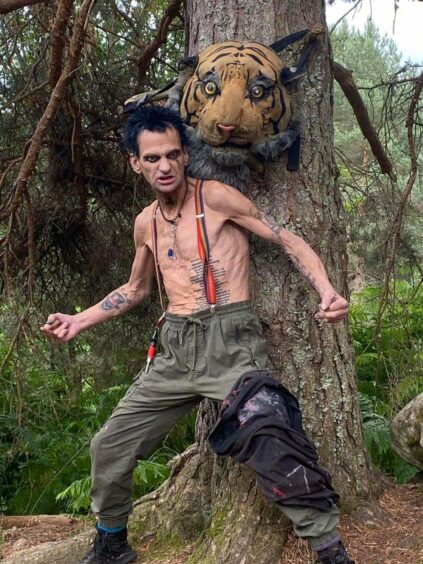
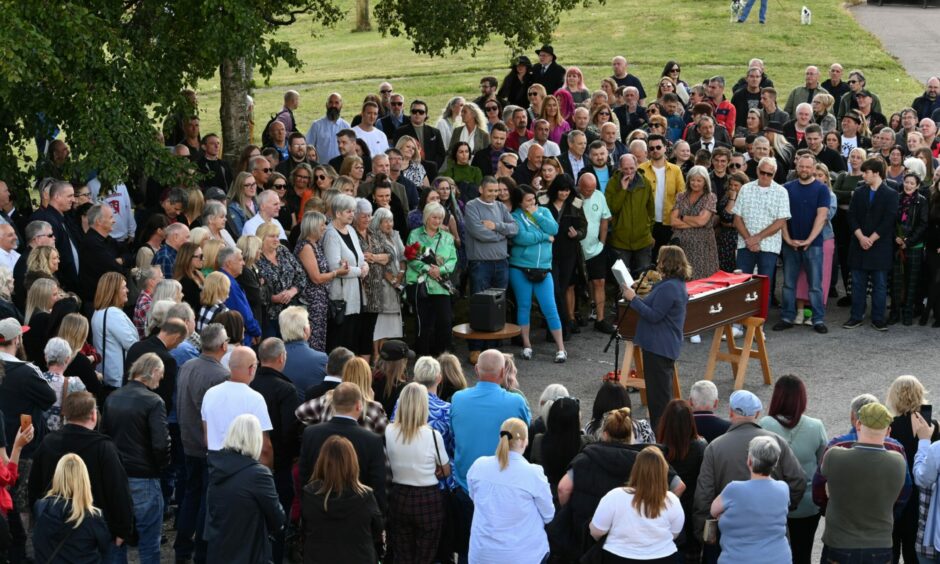
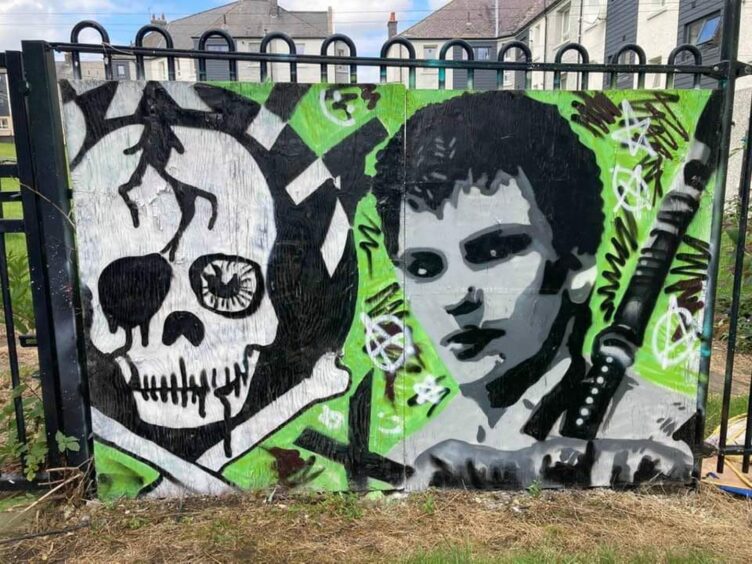
Conversation